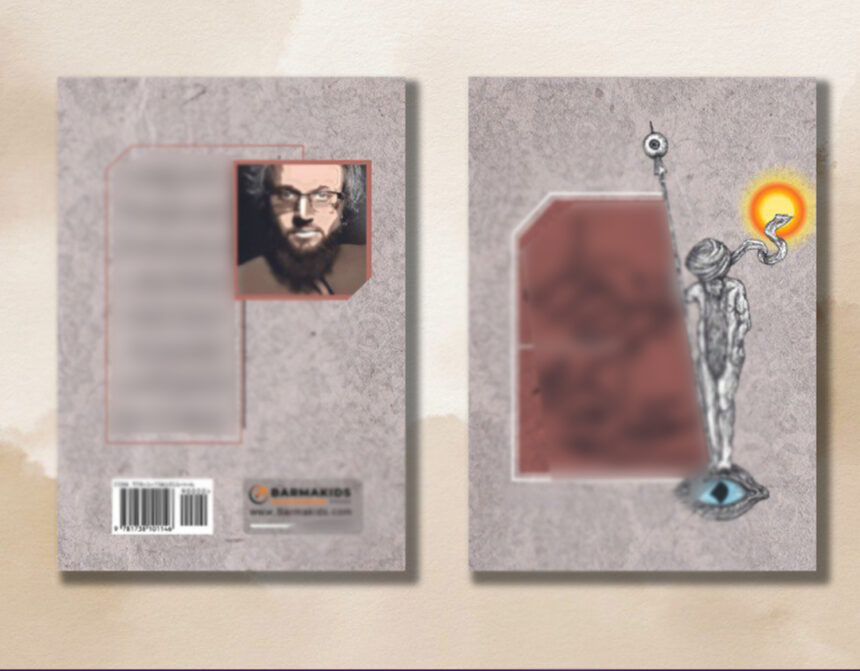RASC News Agency: The anthology entitled “Long Beard, Short Wisdom,” featuring 46 extensive poems, has been released by Barmakian Publications in Canada, adorned with cover artwork by the Iranian illustrator, Elia Tohmatni. Crafted with a language steeped in irony, sharpness, and critique, the work delves into various facets of disillusionment, ideological extremism, and the tendency to misconstrue religious tenets and social norms, often ensnaring individuals through negligence or the perpetuation of illiteracy, thereby entangling them in a cycle of stagnation.
The deliberate condemnation of this misguided and toxic approach toward serving factional rituals permeates the verses, delving into the palpable layers of societal decay. Occasionally, reason falls short in purging the murky waters of irrational beliefs and societal divisions; instead, the long and tangled beards of prejudice obscure the truth, allowing each to perceive reality as they wish, while injecting venomous barbs.
Within this selection, readers encounter intimate conversations or candid discussions between devotees and their deity, reflecting upon an exceptionally friendly and transparent relationship unfolding in peculiar circumstances. They confront a spirit of rebellion seated in the presence of their creator, laden with soul-stirring whispers and, at times, laughter ringing with irony, intermixed with meaningful jests, furrowed brows, and numerous criticisms that carry undertones of satire, unmasking the heirs of religious dogma and giving voice to discontent.
Readers savor the flavor and tone of satire interwoven throughout these compositions. Satire, rooted in Arabic terminology, conveys reproach or teasing in Persian narratives and is derived from “Latin” (satira), which refers to a vessel used to serve food, fruits, and wine to deities, nobles, and the elite. The amalgamation of various foods, fruits, and wines in numerous contexts gave rise to this term, finding its origin in the Arabic language. It finds expression across a multitude of genres and forms such as theater, plays, cinema, and beyond.
Satire assumes multifaceted and layered expressions, operating as a surgical tool to excise the poisonous glands of societal, national, or communal toxicity. It indirectly addresses anomalies, inconsistencies, and misconduct, yet remains profoundly impactful and enlightening. Satire never solely aligns with tales of depravity; it also extols the virtues of purity and elegance, wherein poets and sages like Obaid Zakani have elevated this art form to a specialized craft, and contemporary satirists, such as Ismail Siyah Shaher (Gazk) or Siyah Sepid Anroon, stand as some of the most scathing satirists, while Nasir Ahmad Nashat is remembered for his acerbic wit. Overall, poets of every language have experimented with this form of art, employing satire for societal reform, rebuking the tyrants, consoling the afflicted, or celebrating the righteous. However, they have never deemed themselves satirists.
The author adds that satire is not always meant for laughter. These verses have been woven with a bleeding heart and a sea of tears, acknowledging that the writing style and skill in satire may not be as refined, and the focus on this art form, which demands creativity and mastery, has been somewhat lacking. Yet, observing the distortions within society and living in an environment where every corner and road witnesses the settling dust of poisonous beliefs disseminated by misconceived religious doctrines is deadlier and more venomous than silence or speechlessness against it. These verses are rendered in the language of our times, leaving the judgment of their satirical essence to the discerning reader.






